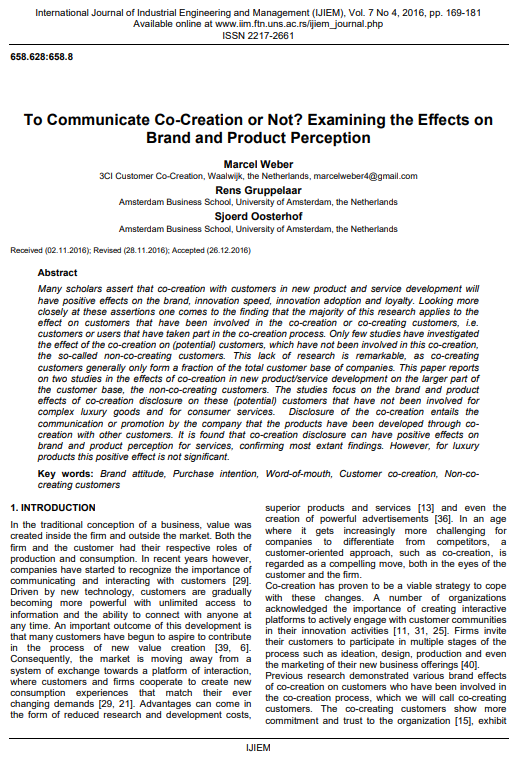To Communicate Co-Creation or Not? Examining the Effects on Brand and Product Perception

Published 2016-12-30
abstract views: 413 // FULL TEXT ARTICLE (PDF): 0
Keywords
- Brand attitude,
- Purchase intention,
- Word-of-mouth,
- Customer co-creation,
- Non-co-creating customers
How to Cite
Copyright (c) 2023 International Journal of Industrial Engineering and Management

This work is licensed under a Creative Commons Attribution 4.0 International License.
Abstract
Many scholars assert that co-creation with customers in new product and service development will have positive effects on the brand, innovation speed, innovation adoption and loyalty. Looking more closely at these assertions one comes to the finding that the majority of this research applies to the effect on customers that have been involved in the co-creation or co-creating customers, i.e. customers or users that have taken part in the co-creation process. Only few studies have investigated the effect of the co-creation on (potential) customers, which have not been involved in this co-creation, the so-called non-co-creating customers. This lack of research is remarkable, as co-creating customers generally only form a fraction of the total customer base of companies. This paper reports on two studies in the effects of co-creation in new product/service development on the larger part of the customer base, the non-co-creating customers. The studies focus on the brand and product effects of co-creation disclosure on these (potential) customers that have not been involved for complex luxury goods and for consumer services. Disclosure of the co-creation entails the communication or promotion by the company that the products have been developed through co-creation with other customers. It is found that co-creation disclosure can have positive effects on brand and product perception for services, confirming most extant findings. However, for luxury products this positive effect is not significant.
Article history: Received (02.11.2016); Revised (28.11.2016); Accepted (26.12.2016)

